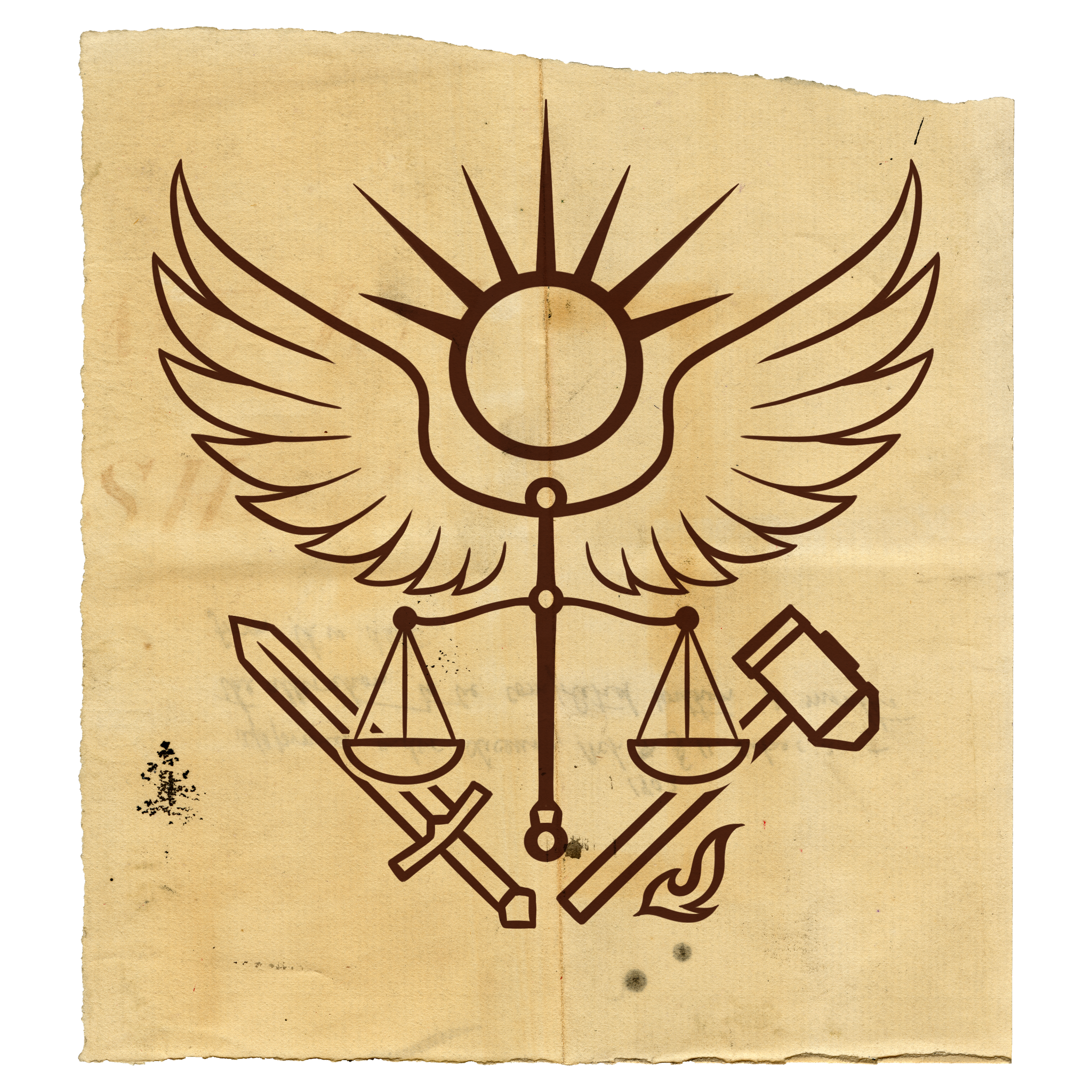The Celestial Host
Overview
The Celestial Host was the divine army forged by the gods Xelene and Randia in response to the rise of Celian Maleficium and her empire of Kael'Dun. Created in 19992 BCE, the Host was made up of radiant warriors crafted from divine light, law, and purpose - each one a living weapon against chaos, corruption, and tyranny.
Unlike mortal armies, the Celestial Host was born fully formed, imbued with divine power and guided by purpose. They were not only soldiers, but symbols—hope made manifest, order given wings.
The Host fought in all three Wars of Light and Darkness, suffering great losses and witnessing the slow corruption of their ranks. Though they failed to defeat Celian by force, their sacrifices laid the foundation for the eventual Banishment of Demonkind.
Leadership – The Five Paragons
At the core of the Host were five uniquely powerful angels, each representing a distinct divine ideal. They led the celestial armies and became legends in their own right:
- Maccius, Blade of Judgment – Commander of the Host, embodiment of unwavering law and justice. Slain by Nilsa during the Third War.
- Nilsa, Seraph of the Blade – Wielder of four magical swords, master of divine combat and once a paragon of balance. Betrayed the Host after falling in love with the incubus Sylix, later joining Celian’s side.
- Leander, Herald of Dawn – Angel of patience, foresight, and precision. Vanished after the fall of the Host; his fate remains a mystery.
- Astrea, Warden of Truth – Guardian of clarity and divine truth, slain during the First War and displayed in chains above Viremalas.
- Solastra, Flame of the Sky – Wrathful stormbringer and the Host’s strongest warrior. Disappeared during the final battles of the Third War; believed captured or sealed.
Mission and Doctrine
The Celestial Host was created with one mission:
To bring divine order to a world torn apart by chaos and corruption.
Their doctrines reflected the will of their creators:
- Xelene’s guidance shaped them to inspire hope and beauty in battle.
- Randia’s law instilled them with purpose, truth, and judgment.
Each angel embodied a fragment of this divine doctrine, and for many mortals, the Host was the only tangible proof of divine intervention during the Aeon of Doom.
The Host's Decline
Though the Host burned brightly, it was not immune to mortal failings.
- Astrea’s death in the First War shattered morale.
- Nilsa’s growing instability through the Second War created distrust.
- Her betrayal during the Third War, followed by the loss of Maccius and Solastra, broke the Host’s structure entirely.
With their leadership gone or lost, the remaining angels withdrew - some returning to the divine realms, others vanishing into Ebbavion to live in secret exile.
Legacy
Though the Celestial Host fell, its impact endures. Their relics are scattered across the world - holy weapons, divine sigils, broken armor - many of which are now sacred heirlooms or hidden away in ancient vaults. Their stories shape the philosophies of modern paladins, clerics, and truthseekers. Some believe the Host may one day return, not to fight - but to judge.
“The Host is not gone. It is waiting. And when the sun rises again over Kael'Dun, it will rise with them.” – Prophet of the Dawnsong




Comments